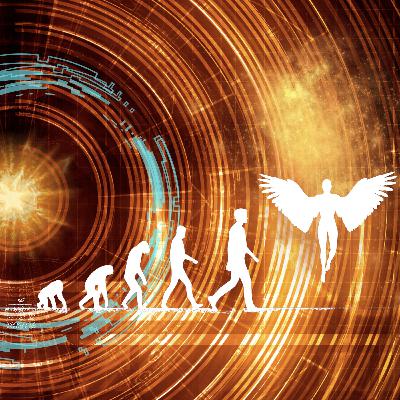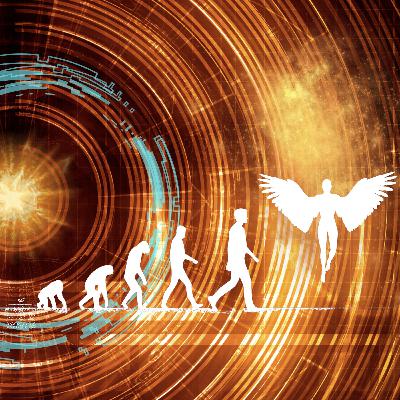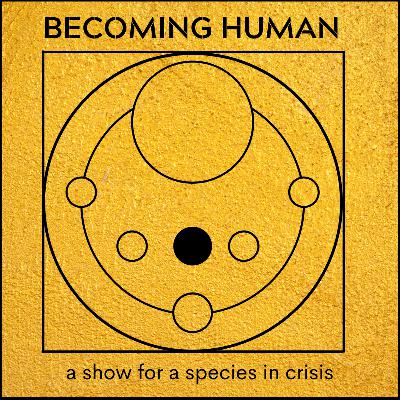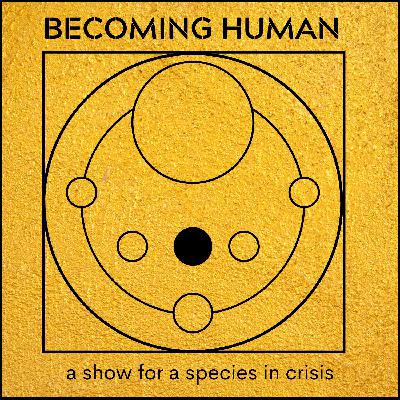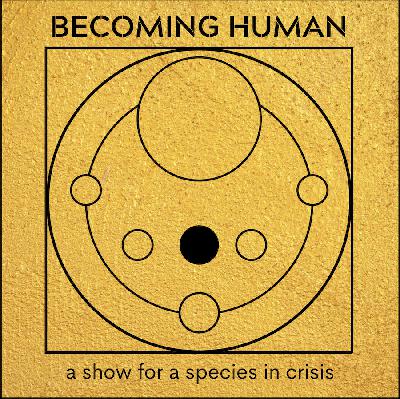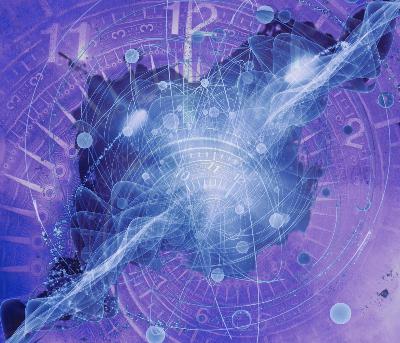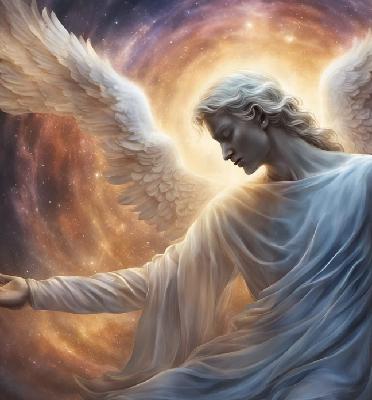Discover Becoming Human
Becoming Human

Becoming Human
Author: Samuel Loncar, Ph.D.
Subscribed: 12Played: 453Subscribe
Share
© Becoming Human is copyrighted and may not be reproduced or used without permission.
Description
Becoming Human with the philosopher Samuel Loncar is a show for a species in transition.
The show features long-form, solo series that bring scholarly depth and academic insights to today’s most pressing questions around science, religion, technology, and philosophy. Between these long-form, solo series, enjoy Explorations: journeys into time, culture, art, and history, encountering the mystery of the Human in conversations and free-standing episodes.
Series 1: Origins, tells the story of the atheistic revolution, beginning with Socrates and Jesus, that made the modern world.
The show features long-form, solo series that bring scholarly depth and academic insights to today’s most pressing questions around science, religion, technology, and philosophy. Between these long-form, solo series, enjoy Explorations: journeys into time, culture, art, and history, encountering the mystery of the Human in conversations and free-standing episodes.
Series 1: Origins, tells the story of the atheistic revolution, beginning with Socrates and Jesus, that made the modern world.
43 Episodes
Reverse
This episode exposes modern myths about philosophy, religion, and science. To see the truth about ourselves and our culture, we need to recognize Socrates for who he really was: a religious revolutionary. Becoming Human: Origins Samuel Loncar, Ph.D. (Yale)
Socrates is perhaps our most famous philosopher. But his life and death defy our dominant ideas of reason and religion. By paying the ultimate price for his philosophy, Socrates became the West's first great religious martyr, changing his world, and ours. Becoming Human: Origins Samuel Loncar, Ph.D. (Yale)
No single person has shaped history more than an obscure Jewish teacher who was executed by the Roman empire. Today, we know him as a god, a myth, a savior. In fact, he was the greatest philosopher of his time: Jesus of Nazareth. Becoming Human: Origins Samuel Loncar, Ph.D. (Yale)
Since the modern age is over and modernity is a myth, what comes next? This episode offers a history of the current revolution in our greatest knowledge technology: the decline of literary and the rise of a new Aural Age. To respond to the end of reading, we need a new vision of philosophy and education. Welcome to the Becoming Human Project.
Freedom without choice is an illusion, but choice is not freedom. This episode features the first part of my series on how modernity traps us by increasing meaningless choices while destroying our freedom. Learning why we have so many choices is the first step towards accepting out situation, then transforming it with philosophy as a way of life.
Harvard Astrophysicist Avi Loeb discusses his book, Extraterrestrial: The First Sign of Intelligent Life Beyond Earth, which lays out his scientific hypothesis that 'Oomuamua, the first interstellar object detected in our solar system, is likely equipment from an Extraterrestrial civilization. We discuss the state of science, why it has been closed-minded about extraterrestrial life, and what the future of science, and humanity, might be.
Makoto Fujimura is an internationally recognized artist who has developed a unique fusion of traditional Japanese painting, Nihonga, with abstract expressionism. A leading writer, speaker, and thinker on the intersection of art, faith, and culture, Fujimura published Art and Faith: A Theology of Making, with Yale University Press in 2021. In this conversation, Fujimura shares his story and his wisdom on how art is a way of becoming human, how it can help us live with suffering, and even reveal the divine world in everyday life. Topics covered include Miyazaki's vision of a post-atomic Japan, how William Blake's Jerusalem transformed the young Fujimura's life, and why the Western separation of nature and culture is foreign to Japan.
Søren Kierkegaard, the Danish philosopher and religious thinker, created one of the most consequential bodies of writing in human history. One of the greatest literary writers, he is also widely regarded as the most important philosophers and theologians to create much of the 20th century: movements like existentialism, modern theology, and even forms of modern nihilism can be traced back to the work of Kierkegaard. Kierkegaard is known as a delightful and difficult figure; like Socrates, he is ironic and hard to understand. He is also my first great teacher, so to honor his personal and historical influence, I am doing an 8 episode series on Soren Kierkegaard: The Poet of Existence. Welcome to Episode One: Why Does Kierkegaard Matter?, where I ask why Kierkegaard matters, and explain his historical, philosophical, and spiritual importance today.
As a philosopher and scholar who writes about Christian-Jewish relations and modern German thought, I offer in this lecture an analysis of antisemitism as a philosophical problem, show its global scope, and explore its historical and existential significance as a threat to any vision of universal human flourishing. Referenced Materials Becoming Human: Origins Christianity's Shadow Founder: Marcion, Anti-Judaism, and The Birth of Protestant Liberalism Why Antisemitism is Our Problem
On Nov. 11, 1855, after an astoundingly rich yet brief life, Søren Aabye Kierkegaard died. He requested his epitaph read simply: “That Individual.” The “single individual” is the soul of Kierkegaard’s work, but what does it mean to become an individual? This final episode of Kierkegaard: The Poet of Existence, explores the mystery of freedom and true individuality, and how they relate to the Eternal. COURSE RELEASE 8pm EST 10.27.2023 Course Link: www.samuelloncar.com/courses Course Code: BECOMINGHUMANWITHSK Series Description Søren Kierkegaard, the Danish philosopher and religious thinker, created one of the most consequential bodies of writing in human history. One of the greatest literary writers, he is also widely regarded as the most important philosophers and theologians to create much of the 20th century: movements like existentialism, modern theology, and even forms of modern nihilism can be traced back to the work of Kierkegaard. Kierkegaard is known as a delightful and difficult figure; like Socrates, he is ironic and hard to understand. He is also my first great teacher, so to honor his personal and historical influence, I am doing an 8 episode series on Søren Kierkegaard: The Poet of Existence.
What is Science? What happened in the Scientific Revolution? How does Science progress? Thomas Kuhn’s The Structure of Scientific Revolutions is the most influential book in the history and philosophy of science, addressing these and other key questions. This public series offers an introduction to this major work and includes a discussion of Kuhn's core ideas: paradigm shifts, normal and revolutionary science, and more.
Thomas Kuhn argued that history would change our image of science, causing a revolution we are still unprepared to face. This Kuhnian revolution challenges traditional epistemology by arguing we must look to science itself to understand how knowledge develops, and looking to science demands facing history. This episode of my course on Kuhn’s The Structure of Scientific Revolutions explores these issues, and more.
Thomas Kuhn coined the concept of a paradigm to describe the unique achievement of science. Since Kuhn, the terms “paradigm” and “paradigm shift” have entered into popular culture, but what really is a paradigm? How does it connect to normal science? And can it help us distinguish real science from pseudo-science? All these questions, and more, are explored in this episode of my series on Kuhn. Episode 3, The Structure of Scientific Revolutions: An Introduction
The longing for a complete science is one of the great dreams of modernity. Is such a complete science possible, and can Kuhn’s idea of a paradigm help us realize it? This episode explores the origins and power of the search for completeness and unity in Western science, and reveals the unexpected spiritual origins of this ideal. Ep. 4, The Structure of Scientific Revolutions: An Introduction
According to Thomas Kuhn, the most mature sciences have only a limited tolerance for novelty. Contrary to the common image of scientific progress as a continuous series of discoveries, Kuhn shows it’s actually the progress of paradigms towards ever greater precision. Progress in normal science thus does not aim at novelty but the enrichment of the depth and concreteness of the theory. Drawing on the the insights of Edward Witten’s defense of string theory, Episode 5 of Kuhn: The Structure of Scientific Revolutions explores the concept of novelty and discovery in Section IV: “The Nature of Normal Science.”
Science is the only tradition that actively admits its own errors, gaining deeper knowledge by overcoming its tendency to orthodoxy. This happens when scientific revolutions shatter existing paradigms. The process begins with anomalies, potential facts that do not fit the paradigm. The physicist Sabine Hossenfelder sees many anomalies in current physics, and argues that physics today has lost its way because physics has followed the wrong rules, rules of beauty rather than rules proper to science. Hossenfelder’s intervention in physics illustrates the profound relevance of Thomas Kuhn’s discussion of rules and facts in science. Kuhn explores how scientific facts grow and change, how fact and theory are finally inseparable, and how debates about the rules of science emerge in revolutionary periods, like our own. I use Hossenfelder in conversation with Kuhn’s “The Priority of Paradigms” in Ep. 6 of my series to show facts are far more complex than we realize, and this is why today our partisanship manifests as a world of no shared facts. Science shows the way forward. Episode 6, The Structure of Scientific Revolutions: An Introduction
Chef Arturo Franco Camacho is the Culinary Director and Executive Chef of three of New Haven’s best restaurants: Geronimo’s Southwestern Kitchen, Shell & Bones Oyster Bar, and Camacho Garage. His restaurants are not only a destination for great food but fantastic atmosphere. Trained at the Culinary Institute of America (CIA), the world’s premiere culinary college, he has worked as a chef at restaurants in Spain, France, and London, and spent five years as chef aboard the world’s top cruise ship, the Queen Elizabeth II. In this conversation, Chef Franco talks about his love of cooking with his mom and grandmother in Mexico at an early age, his brief time in dentist’s school, his travels around the world, and how, despite training and working in top kitchens, he was denied work in Hew Haven as a chef, which lead him to create New Haven’s first taco cart on Yale’s campus.
Is life a momentary fragment, a meaningless event? Or Is life an eternal and glorious process and event? These two different ideas of life—life as intrinsically meaningless or life as intrinsically meaningful—are connected to our emotional reactions and ultimately our idea of time and our world.
What is the Way? The Way, or Tao, is the central mystery of life, according to the Tao Te Ching, one of the greatest works of Chinese philosophy. So how do we find the Tao? What does the Way look like? This video answers that question by introducing the Tao Te Ching, and the mystery of Return... Join me at the Becoming Human Project today!
The idea of Angels, whether we believe in them or not, reveals secrets about human consciousness and how to transform it. In this episode, I use the German poet Rilke to connect deep patterns across Judaism, Islam, and Christianity and other traditions, found in their shared understanding of angels as messengers that lead to revolutionary transformations of human consciousness. Ultimately, we discover that humans across all time, cultures, and traditions all believe in some idea of what angels are, and that idea is connected to accessing inspiration and higher states of consciousness. Series: Apocalypse: A Philosophy of Angels


